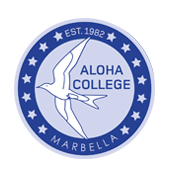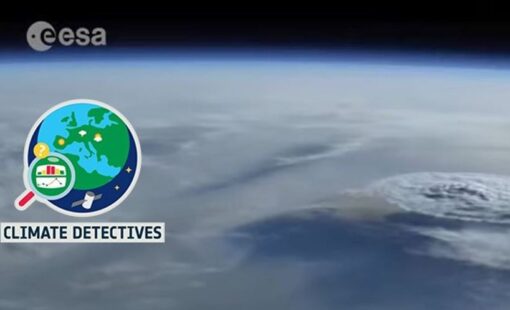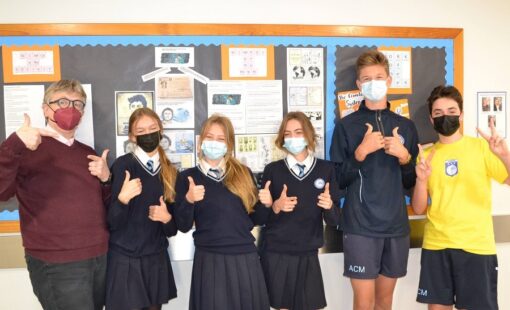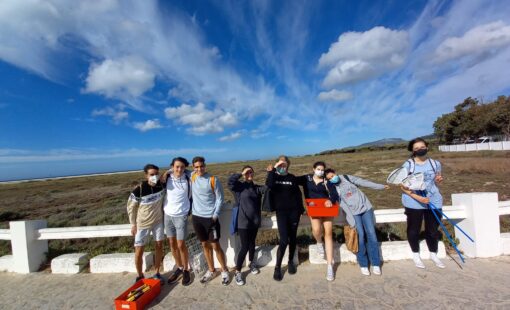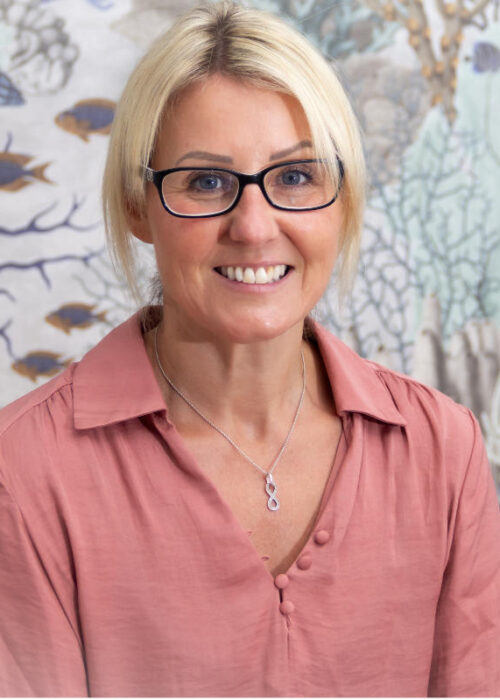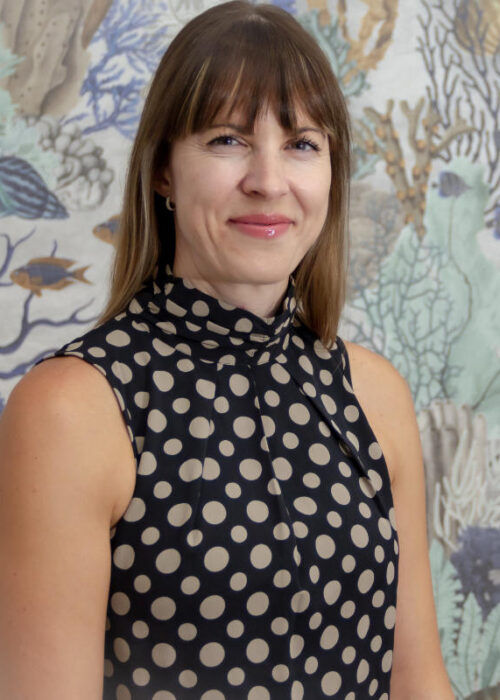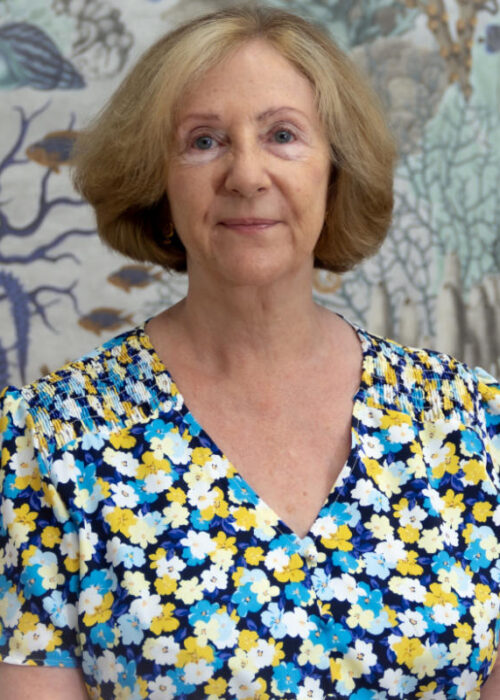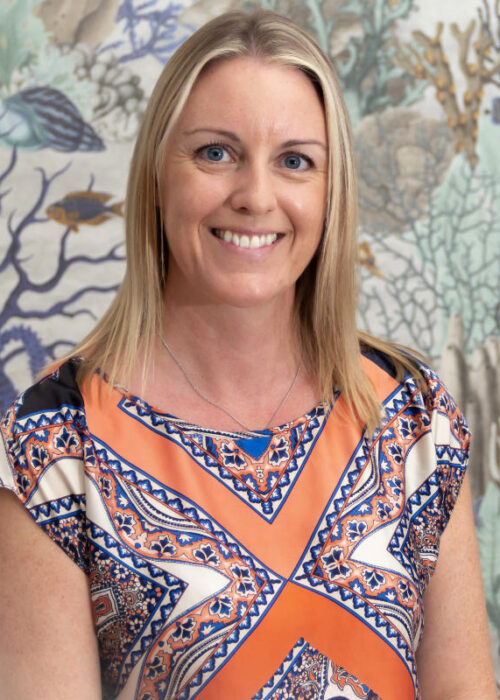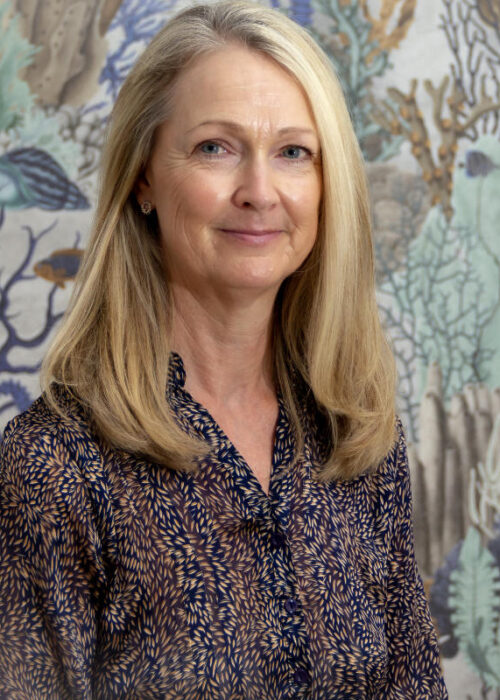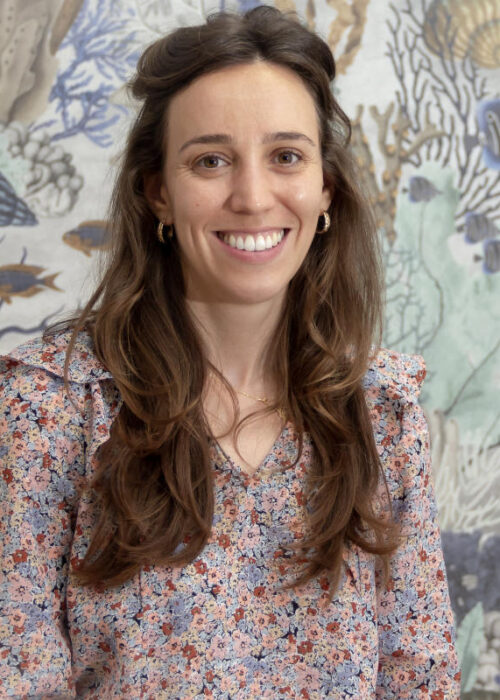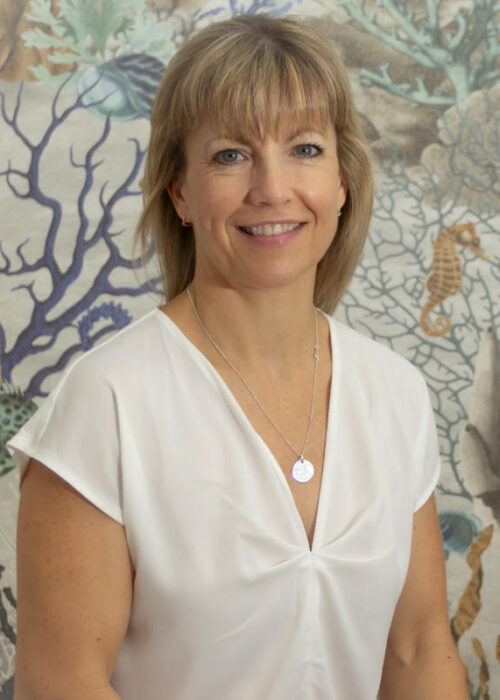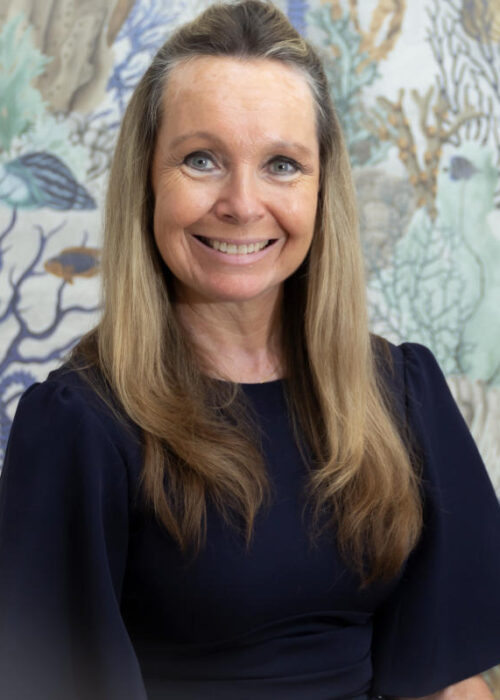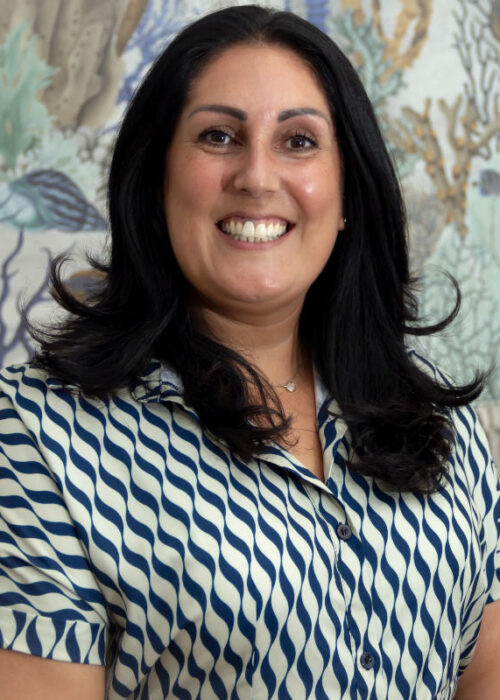ECO-School
At the beginning of the 2018-2019, Aloha College Marbella started the process of achieving the accredited Green Eco Flag.
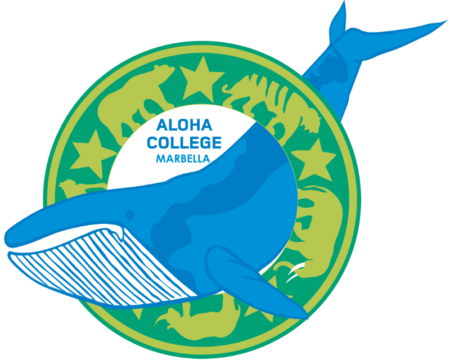
As you walk around the school, you may have noticed some changes such as creative murals made from recycled materials, a colourful biodiversity garden, our under construction hydroponics planter, water saving drinking fountains or the lack of litter that surrounds our playgrounds. However, lots of improvements that have been made may not be as evident.
Did you know that last year we started a meat-free day in the canteen for all students, to lower our carbon footprint and reduce gas emissions? Have you noticed that our whole school is using LED lightning to save energy and waste? Were you aware that all Aloha College Marbella staff are now using the environmentally friendly search engine Ecosia on all computers?
As a whole school, led by the initiatives of the students in the Eco committee, we are collaborating to make positive changes.
Some of the initiatives the Committee have already implemented are the use of reusable water bottles, no single use yoghurt tubs at lunch and the start of a school vegetable garden. In Primary, we have Energy Monitors who ensure that appliances are switched off when not being used.
These are yet other examples of the school’s strong commitment to human values and social responsibility.

What is an Eco-School?
Some may wonder what an Eco-School is. An Eco-school is an educational centre that has integrated sustainability into its teaching and management model. It seeks to conserve the environment through its educational community.
That is exactly what Aloha College Marbella has done and keeps doing. We are about to get our first ‘Eco-Schools Green Flag’, which is an internationally recognised award for excellence in environmental action and learning.
What actions has Aloha College Marbella taken to be considered an Eco-School?
Becoming an Eco-School
We carried out many different activities including “the 7 steps to becoming an Eco School”:
1. Form an Ecological Committee led by students. The Eco Committee ensures that the entire school knows about their activities and meets regularly to discuss environmental actions.
2. Carry out an Environmental Review to help the school’s community identify its current environmental impact.
3. An Action Plan is key for an Eco-School work and should be developed with the results of an Environmental Review. It has to be SMART (specific, measurable, attainable, realistic and timely) and pupils have to be involved as much as possible in the drawing of the action plan.
4. Monitor and Evaluate: to find out whether or not a school is successfully achieving the targets set out in the action plan, progress must be monitored and measured.
Results of monitoring should be regularly updated and displayed for the whole school to see, and pupils should be given the responsibility for carrying out the monitoring activities.
5. Curriculum work: Besides increasing the status of the programme, linking eco schools activities to the IPC and cross-curricular lessons ensures that an eco-school is truly integrated within the school community.
6. Getting everyone on board! Actions should not just be confined to the school and pupils should take home ideas to put into practice. It is essential that the whole school is involved in, and the wider community aware of, the school’s Eco-Schools programme.
7. Produce an Eco Code, a statement that represents the school’s commitment to the environment.
It is crucial that pupils play a key role in the development of the Eco Code, as this will give them a greater sense of responsibility towards the values the Eco Code represents.
Therefore, after we solidly implemented the Eco programme and reached the high levels of performance in complying with the 7 steps mentioned above, our school has finally applied for the Green Flag!
The goal is not to add to our list of awards, but its primary purpose is to make our students aware of the importance of living in harmony with the environment, to make educated and sustainable decisions and to raise awareness of the importance of taking care of our school, our neighbourhood, our city and ultimately of our planet.
During the last academic years, we have launched child initiated, ecological projects that have been enthusiastically received by all students and highly applauded by the Aloha College Marbella community. These are some of the projects we are proud of:
Biodiverse Garden
We have some fabulous projects including Miss Freeman’s gardening club who have transformed our Primary quiet area into a zone full of lush greenness, insect friendly flowers and towering sunflowers. To add to this, Mrs Fitzgerald´s group upcycled some pallets into decorative wall planters and Mrs Aspen´s class made a compost bin from scratch using recycled materials. Collaboratively these groups have worked together to create a sustainable and biodiverse garden.
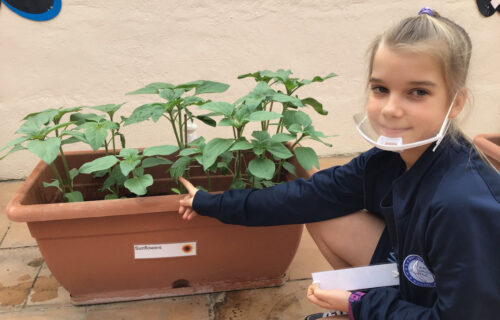
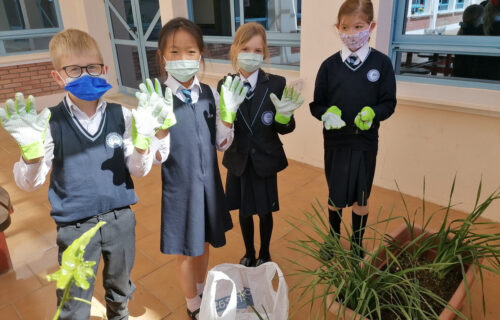
Veg garden
From pupil suggestions, we have now started our own vegetable garden! Primary students began the development of this garden by researching seasonal vegetables and how to care for these plants. They successfully grew and harvested lettuce, radishes and tomatoes. Now the Secondary school are further developing this plot with the intention of growing a bigger selection of vegetables and they will pass their harvested crop to the school chef to use in our delicious school meals. How sustainable!
Keeping our environment clean
As global citizens who care for their surrounding environment, Aloha College Marbella pupils have organised and volunteered in beach cleans and litter collections around the school community. These conscientious students understand the implications and impact that littering can have on the natural environment and the creatures within it.
At our school beach clean, we managed to collect a large amount of rubbish including a lot of harmful plastic items! Some of the litter that was collected was brought back to school and given to the art department for students to repurpose in art project and the rest was sorted into appropriate recycling bins.
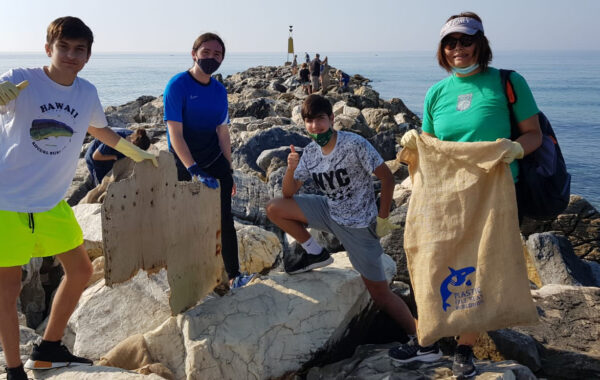
Saving water
As a whole school we have had lessons and assemblies highlighting the importance of water and how we can take action to preserve and appreciate our water usage. Miss Meryl´s and Mr Mulligan´s Year 1 students successfully won second place in an international schools competition with COBIS, highlighting the importance of water and what we are doing in school to be aware of our water usage.
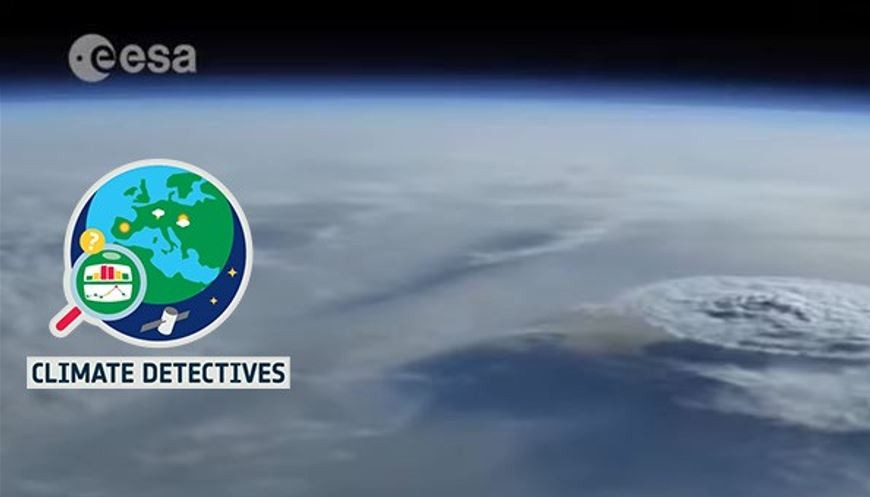
Climate Detectives continue to work on the report for the European Space Agency
You may have seen some of our Year 10 students in yellow jackets during morning rush hour or at the end of school and wondered: what they are up to?
They are carrying out traffic surveys as part of the Climate Detectives Project. They are studying the number of vehicles that pass the school during the day and taking measurements of air quality.
As part of this work they composed a traffic survey which has already been sent to parents and staff about vehicle use related to travel to school. The survey has already shown some interesting trends, but we need to get as many responses as possible to ensure the data is accurate. The traffic survey is easy to fill in and will take five minutes of your time. It is anonymous.
The data will hopefully give some insights into vehicle use and its effect on air quality in our environment. A summary of our findings will be published on the European Space Agency website.
Thank you to everyone who has already completed the survey. If you haven’t done it yet please take time to fill out the survey.
Eco-school art with plastic bottle caps
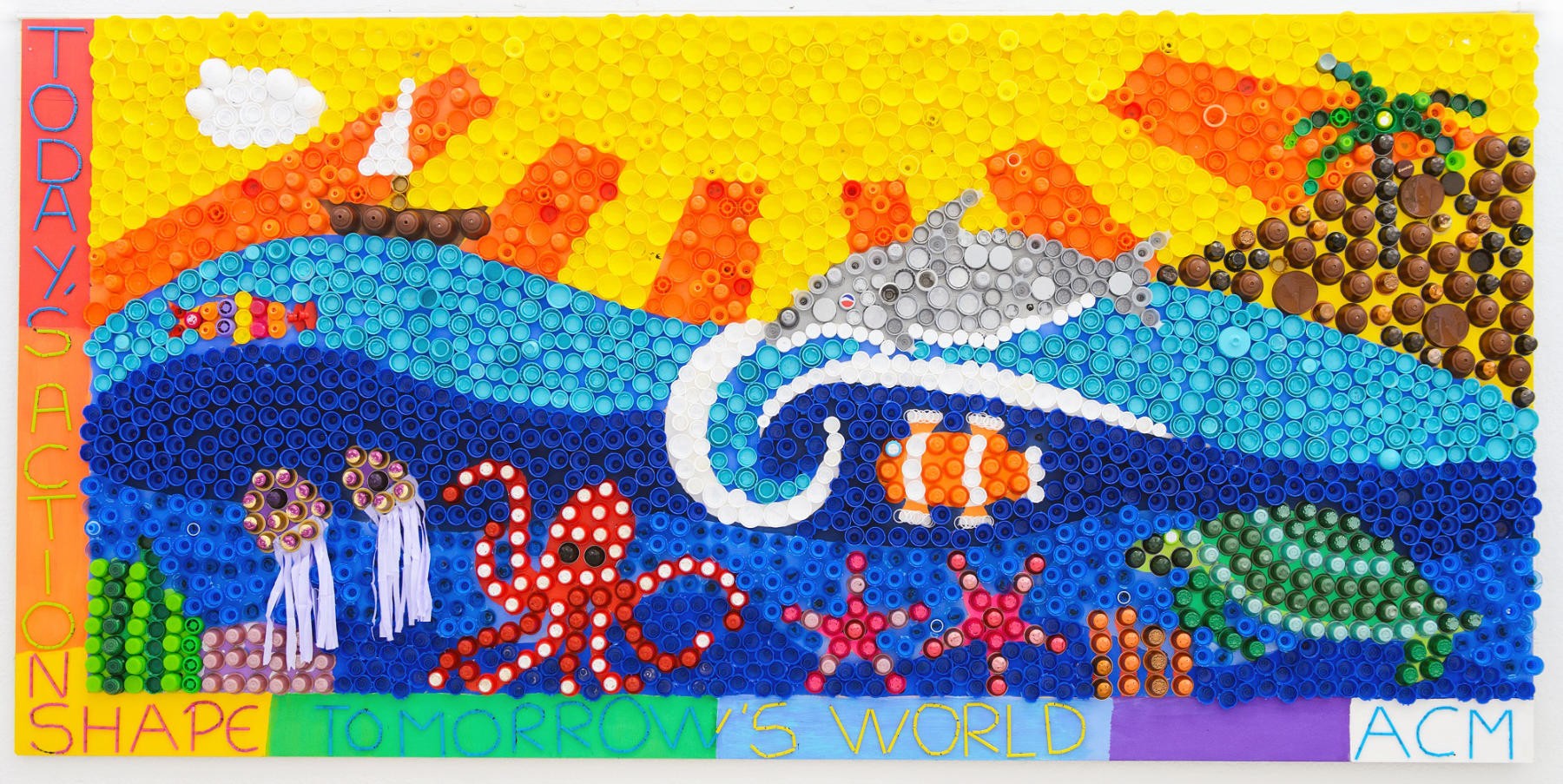
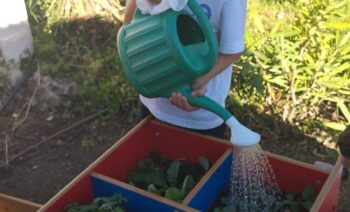
Y1 pupils have been planting seeds with señorita Encarnita and in the next few weeks, they will be observing how their beautiful plants grow.
In the meantime as part of our ‘Let’s Plant It’ topic, we planted some seeds! We each planted either a strawberry, pansy or sunflower seed and over the next few weeks we are going to observe and record their growth.
Year 2 pupils have had a project to enhances the biodiversity of our school environment. They have planted insect attracting flowers and made bug hotels. Come and have a look and see what creatures you can spot.
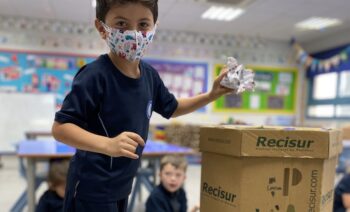
There are plenty of recycling bins throughout the school gardens and corridors.
The bins are perfectly marked so that students and teachers have no doubts and know exactly where to deposit organic waste, paper and plastic.
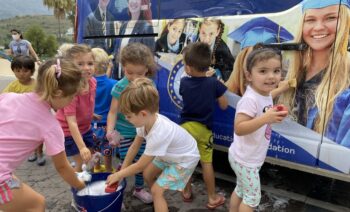
We appreciate and value our diverse school community. Even our youngest children are aware of the special and kind people that make up our school family. The children know how people help them, from Chef Nick cooking their lunch to Juan who fixes everything. The children know that Mr Escobar looks after all the children and they were very interested to learn that she also looks after all the teachers and the rest of the staff at ACM! Our lovely Nursery children were eager to help the school in some way. They served our school community by washing the school minivans using as little water as possible and… they made them sparkling clean!
